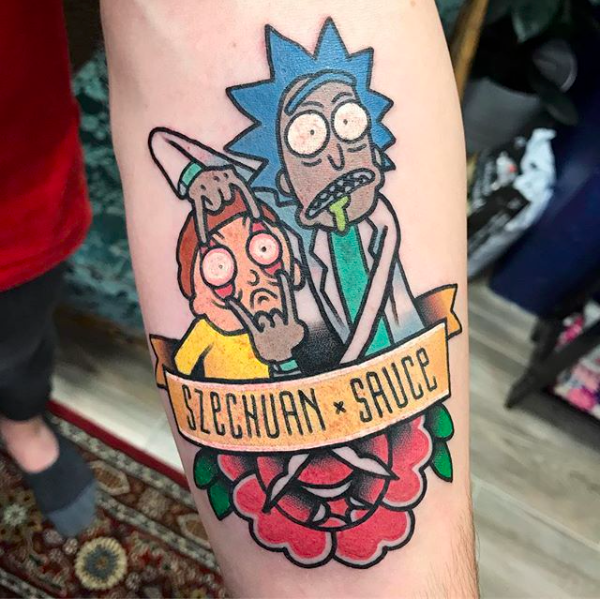Social media is built on communication. No matter what it’s being used for, there is always something that the person using it is wanting to say and get across to the people that will come in contact with it. People posting on their own personal accounts generally want to communicate about their lives and their likes and interests, companies using social media usually are wanting to communicate why people should want to buy their products, real estate, or use their services over others; non-profits might use social media to communicate about a social issue that they are wanting to raise money, awareness or donations for. It can even take something very small and seemingly insignificant and wind up creating something wide spread and thriving from it under the opportune circumstances.
An example of a time on social media that this type of movement has happened is the Szechuan Sauce Event. Szechuan Sauce was a specialty sauce that McDonald's had available in 1998 to promote the Disney movie Mulan. Then in 2017 the animated series Rick and Morty alluded to the spicy sauce in the premier of their third season on april fools day. After this appearance in the popular show Szechuan Sauce was being asked for over and over in many McDonald's locations. People created memes, tweeted, commented, made a petition that got over 35,000 signatures and even got tattoos related to the sauce.
One lucky individual even found a pacet of the original sauce in a second hand car and had the privilege of selling this packet for $15,000 on Ebay saying, “I hope somebody who wants to eat some 20-year-old gnarly sauce gets this” (A timeline of Rick & Morty’s Szechuan sauce saga, 2017). McDonald’s then decided to offer the sauce as a special on October 1st to please their fans that were pleading for the sauce over social media. To their surprise so many people showed up and lined up at the stores waiting to get their chance at their Szechuan Sauce that McDonald’s ran out of their limited supply. The fans were less than pleased to have, in some cases, driven miles and waited for hours to get their Szechuan Sauce that riots broke out. People started using social media to communicate their disappointment and anguish at missing out on the limited time offer. The hashtag #GiveUsTheSauce was created and McDonald’s took notice.
McDonald’s was able to see the aubundence of these immediate requests for the reappearance of the special sauce and respond through social media. They tweeted back to their fans that the sauce would be making more resurfaces and not just with such limited supplies this time but with Szechuan Sauce for all at every McDonald's store!


The use of social media in all of these events was the only thing that was allowing communication between fans and store. The fans were able to use social media as a weapon against McDonald’s to demand their sauce be brought back to them and McDonald’s was able to use social media to communicate their apologies to the fans that they disappointed and later to promote their decision to finally please the public and bring back more of the sauce. Social media is the most efficient way to communicate in our modern time. No matter what it is you are wanting to communicate social media can help you do it.
Citations:
Bartleet, Larry, and Larry Bartleet. “Rick & Morty's Szechuan Sauce Saga: a Timeline from April Fools' to Rioting.” NME, NME, 10 Oct. 2017, www.nme.com/blogs/tv-blogs/rick-and-mortys-szechuan-sauce-mcdonalds-2148454.
Maynard, Micheline. “McDonald's Tries Again With Szechuan Sauce, Hoping To Assuage Angry Fans.” Forbes, Forbes Magazine, 22 Feb. 2018, www.forbes.com/sites/michelinemaynard/2018/02/22/mcdonalds-tries-again-with-szechuan-sauce-hoping-to-assuage-angry-fans/#7b444f133b70.













